Have you ever imagined carrying your credit cards, loyalty cards, and even your driver's license right on your smartphone? Well, that’s what a mobile wallet does! A mobile wallet is a revolutionary tool that turns your phone into a digital hub for payments and more. According to recent studies, mobile wallet use has skyrocketed, with over 1.5 billion people using them worldwide. But with so many options, how do you pick the best one? That’s where we come in! Let’s break down exactly what a mobile wallet is and help you discover the 5 best mobile wallets you should be using in 2024.
What is a Mobile Wallet?
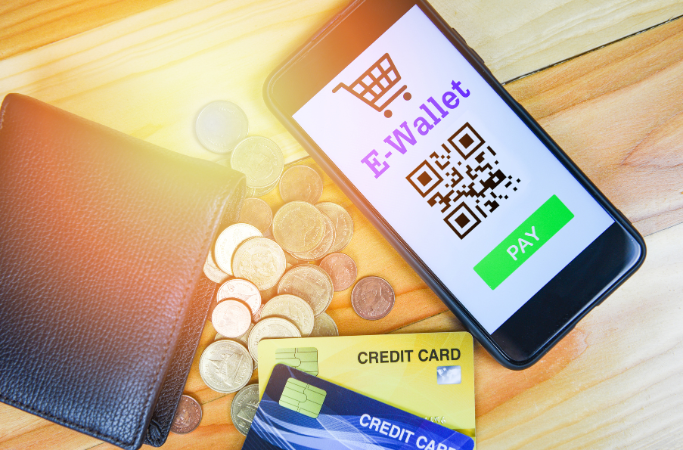
A mobile wallet is essentially a digital version of your physical wallet. It stores payment information, like credit and debit cards, on your smartphone or smartwatch, allowing you to make payments without carrying cash or cards. When you make a purchase, mobile wallets use technologies like Near Field Communication (NFC) or QR codes to securely transfer payment information to a store’s terminal. Instead of transmitting your actual card number, a unique token is generated for each transaction, which adds a layer of security to your payments.
Unlike traditional wallets that store physical cards and cash, mobile wallets offer several benefits like convenience and enhanced security. There are three types of mobile wallets:
- Closed wallets (e.g., Amazon Pay) are limited to transactions within a specific company.
- Semi-closed wallets (like Paytm) allow transactions with selected merchants.
- Open wallets (e.g., Apple Pay, Google Pay) are the most flexible, allowing you to use them at any merchant that accepts digital payments
Mobile wallets are becoming essential in today’s cashless society because they provide secure, contactless payment options. With advanced security features like biometric authentication (fingerprint or face ID) and encryption, mobile wallets help protect your sensitive financial information, making them a safer alternative to carrying physical cards.
Also Read: How To Mine Ethereum | It Is Simple
The Evolution from Physical to Digital
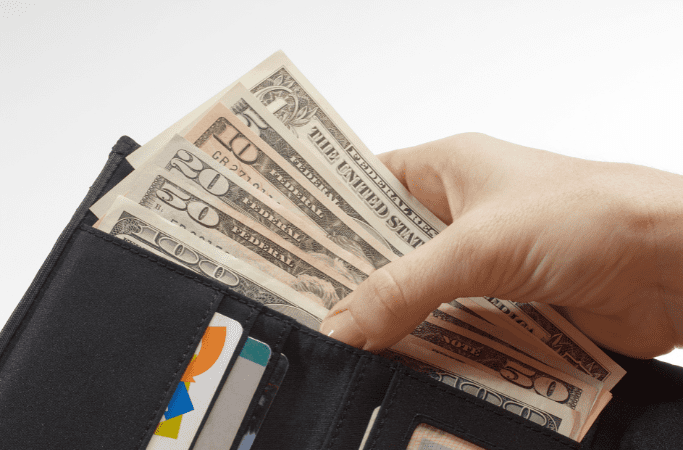
Traditionally, carrying physical wallets with physical credit cards, debit cards, and loyalty cards was the norm. However, with the advent of mobile wallets, users can store multiple credit or debit cards information in their mobile wallet app. This move from a physical wallet to a digital wallet offers more than just convenience; it represents a significant shift in consumer behavior.
How Do Mobile Wallets Work?
A mobile wallet makes paying with your smartphone super easy and secure by storing your credit, debit, and even loyalty cards in one place. Let’s break down how it works and why it’s such a game-changer!
The Technology Behind Mobile Wallets
Mobile wallets use a few key technologies:
- NFC (Near Field Communication): This is what powers “tap to pay” at stores. When you tap your phone near a payment terminal, NFC enables a secure, wireless transfer of your payment information.
- QR Codes: Some mobile wallets use QR codes to scan for payments, especially in places that don’t have NFC terminals.
- Bluetooth: A few wallets use Bluetooth to complete payments without needing to physically tap your phone.
Setting Up a Mobile Wallet
Setting up a mobile wallet is simple:
- Download a mobile wallet app like Apple Pay, Google Pay, or Samsung Pay from your app store.
- Add your cards by entering your credit, debit, or even bank account info. The app will guide you through this process.
- Verify your identity: Many wallets will ask for extra steps like facial recognition or a fingerprint scan to ensure it’s really you.
- Once set up, you're ready to make payments or transfer money with a tap or a scan!
How Payments Are Processed
When you pay with a mobile wallet, here's what happens:
- You choose a card from your wallet app and either tap your phone to a payment terminal (NFC) or scan a QR code.
- Your payment info is securely sent using encryption—meaning your actual card number is never shared with the merchant.
- Instead of your card number, a unique token is created for each transaction, keeping your sensitive info safe.
5 Best Mobile Wallets to Use in 2024
#1. Apple Pay
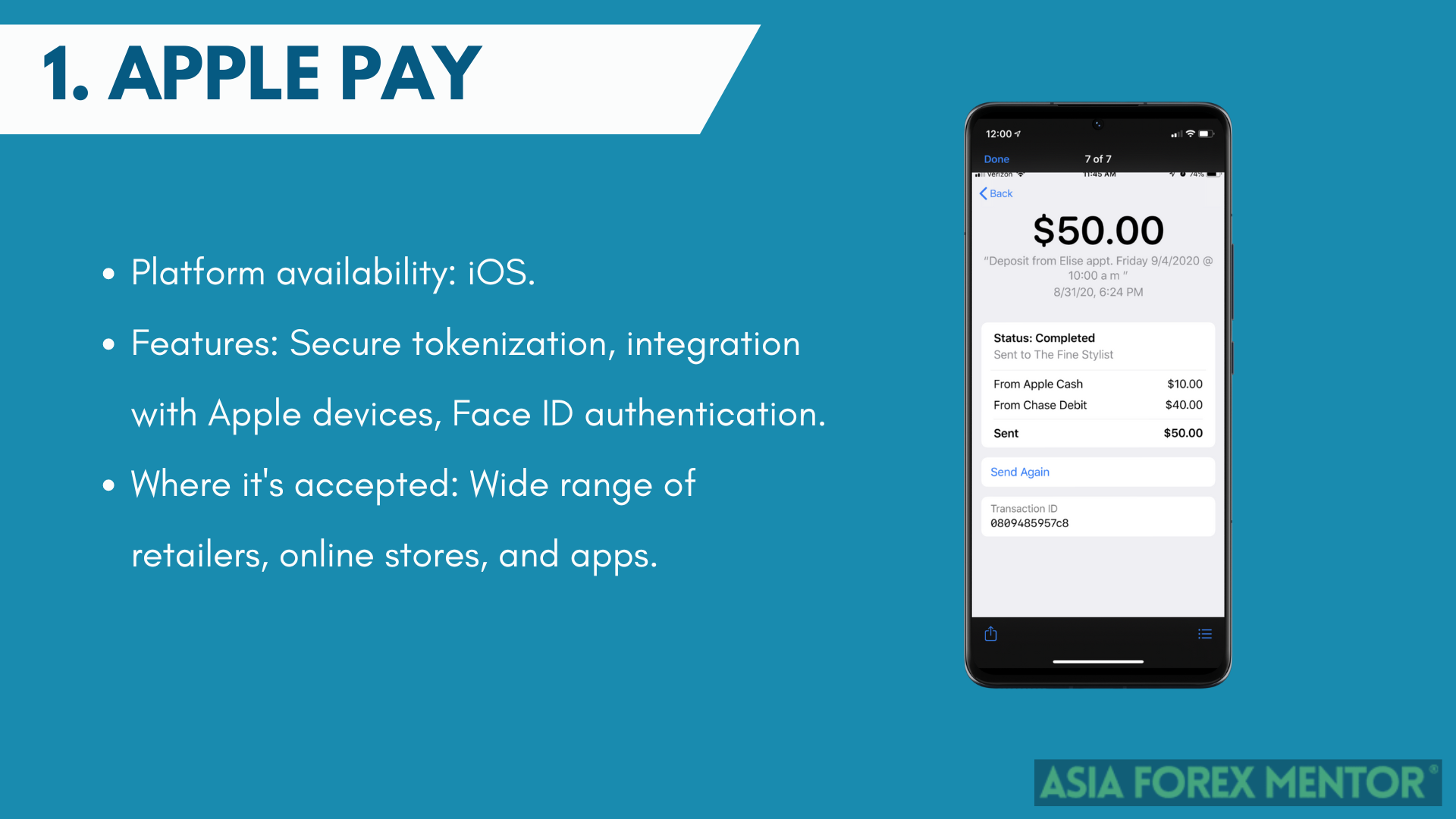
Apple Pay is a mobile payment service exclusively for iOS devices, like iPhones and Apple Watches, that lets you securely pay in stores, apps, and online without needing your physical card. Instead of using your actual card number, it assigns a unique Device Account Number and a one-time security code for every transaction, making it safer than traditional card payments. You can authenticate payments using Face ID, Touch ID, or a passcode, and it's accepted by a wide range of merchants, including major retailers like Whole Foods, Walgreens, and Target.
What makes Apple Pay stand out is its focus on privacy and convenience. Your card details are never stored on Apple servers or shared with merchants, and the service is integrated across all Apple devices. Beyond shopping, it’s also super handy for public transit in cities like New York and London, where you can just tap your phone to pay for your ride.
#2. Google Wallet
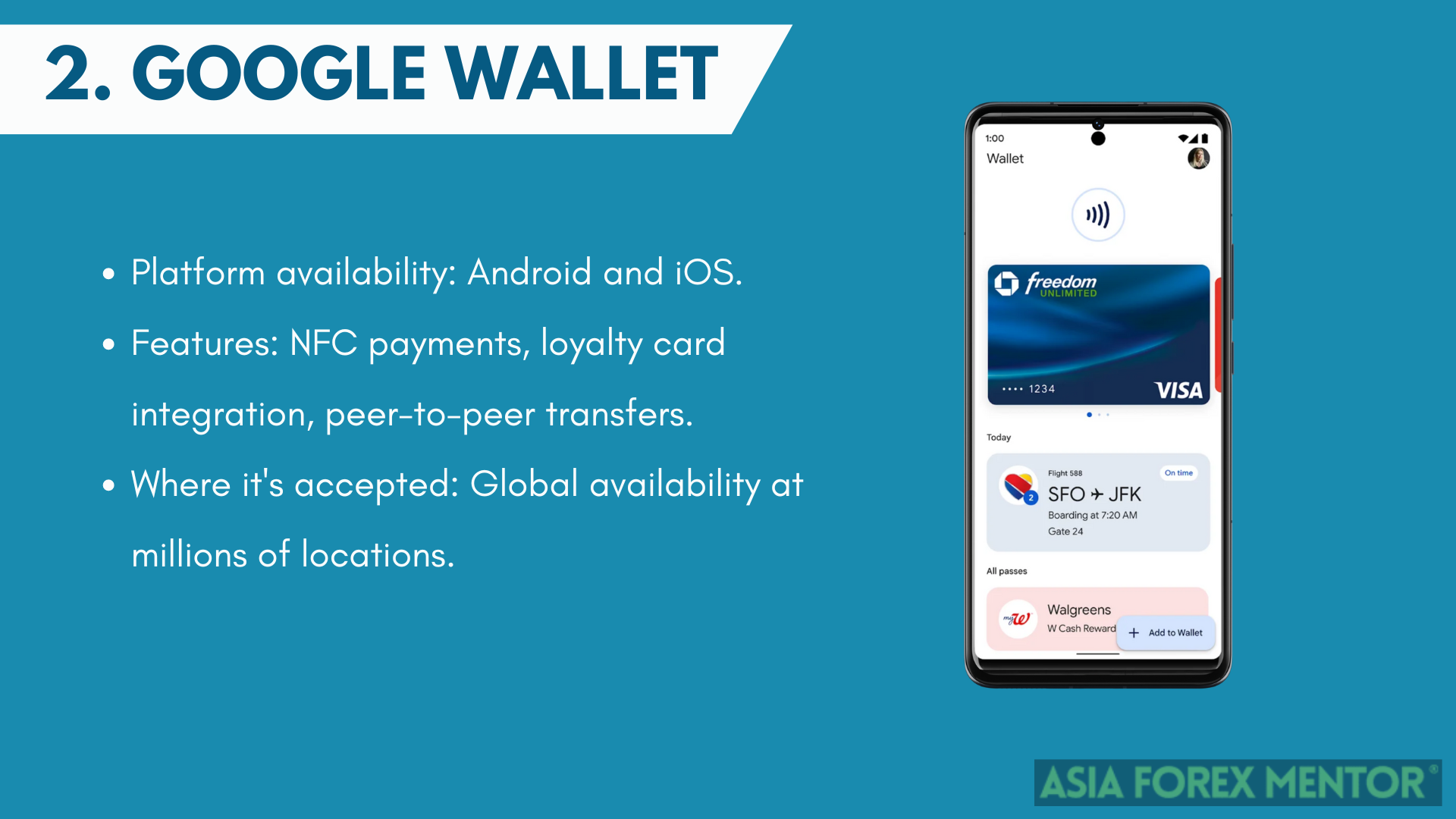
Google Wallet is available on both Android and iOS, giving you a simple and secure way to pay at millions of places around the world. With NFC (Near Field Communication) technology, you can tap your phone at checkout for contactless payments. It's not just about payments though—you can also store loyalty cards, transit passes, and even event tickets in the app. This means everything you need is just a tap away, whether you’re at a store or catching a bus.
Another great feature is its peer-to-peer transfers, which let you send money to friends or family right from your phone. Google Wallet is accepted globally at places that support contactless payments, so whether you're grabbing a coffee or shopping online, it makes transactions fast and secure. Plus, you can integrate loyalty cards, so you never miss out on rewards or discounts
#3. Samsung Pay
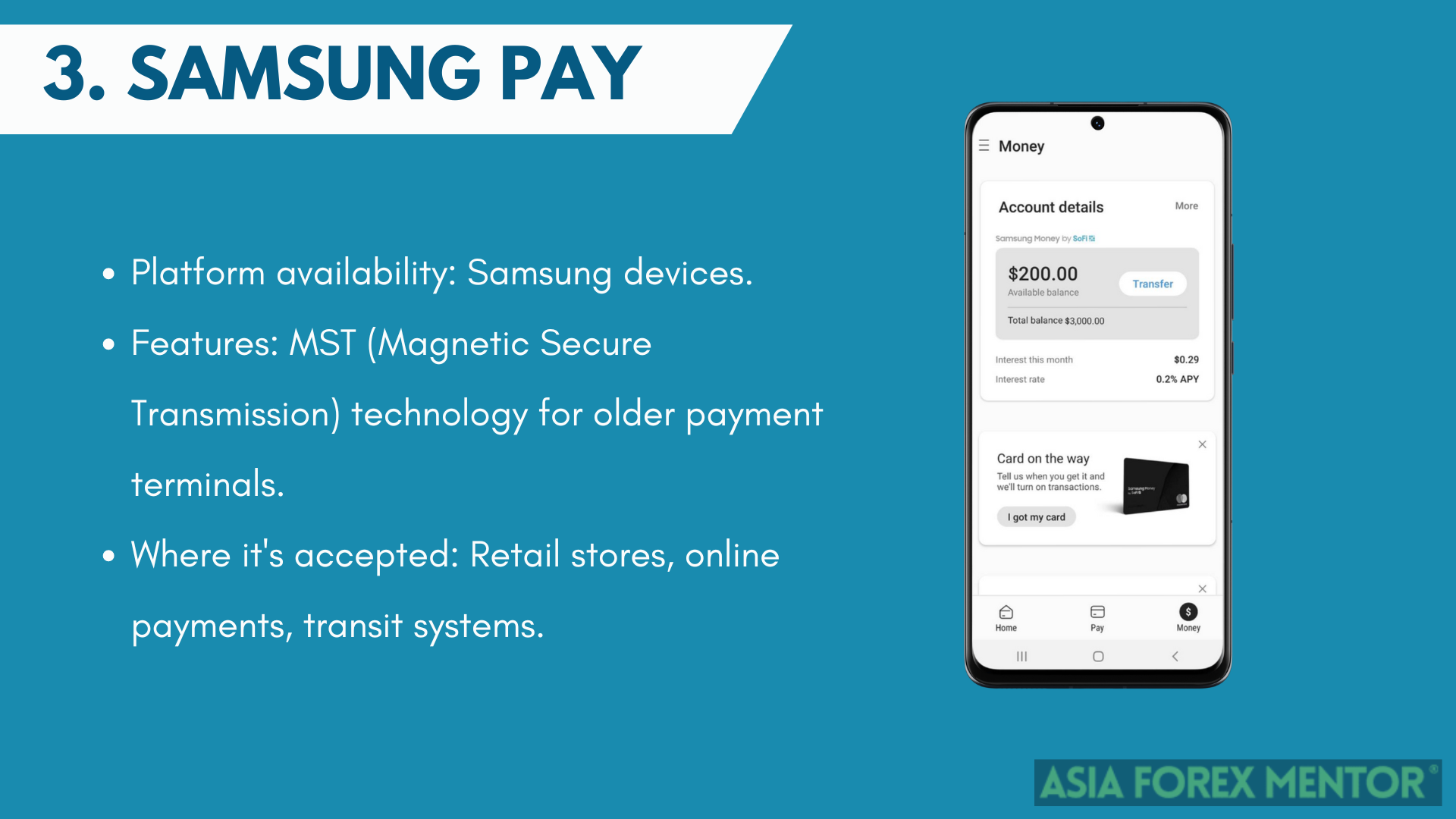
Samsung Pay is Samsung's mobile payment system available exclusively on Samsung devices like Galaxy smartphones and watches. What makes Samsung Pay special is its use of MST (Magnetic Secure Transmission) technology. This allows you to pay at older payment terminals that don’t have NFC (Near Field Communication) support, meaning you can use it at places where even other mobile payment systems might not work. You just hold your phone near the terminal, and MST mimics the magnetic stripe on a card to process the payment.
Samsung Pay is accepted at a wide range of retail stores, online shopping sites, and even transit systems in many countries. This makes it convenient whether you're grabbing a coffee, buying something online, or hopping on public transportation. While MST is being phased out in some newer devices, NFC support remains strong, ensuring you can tap to pay at most modern terminals.
#4. PayPal Mobile
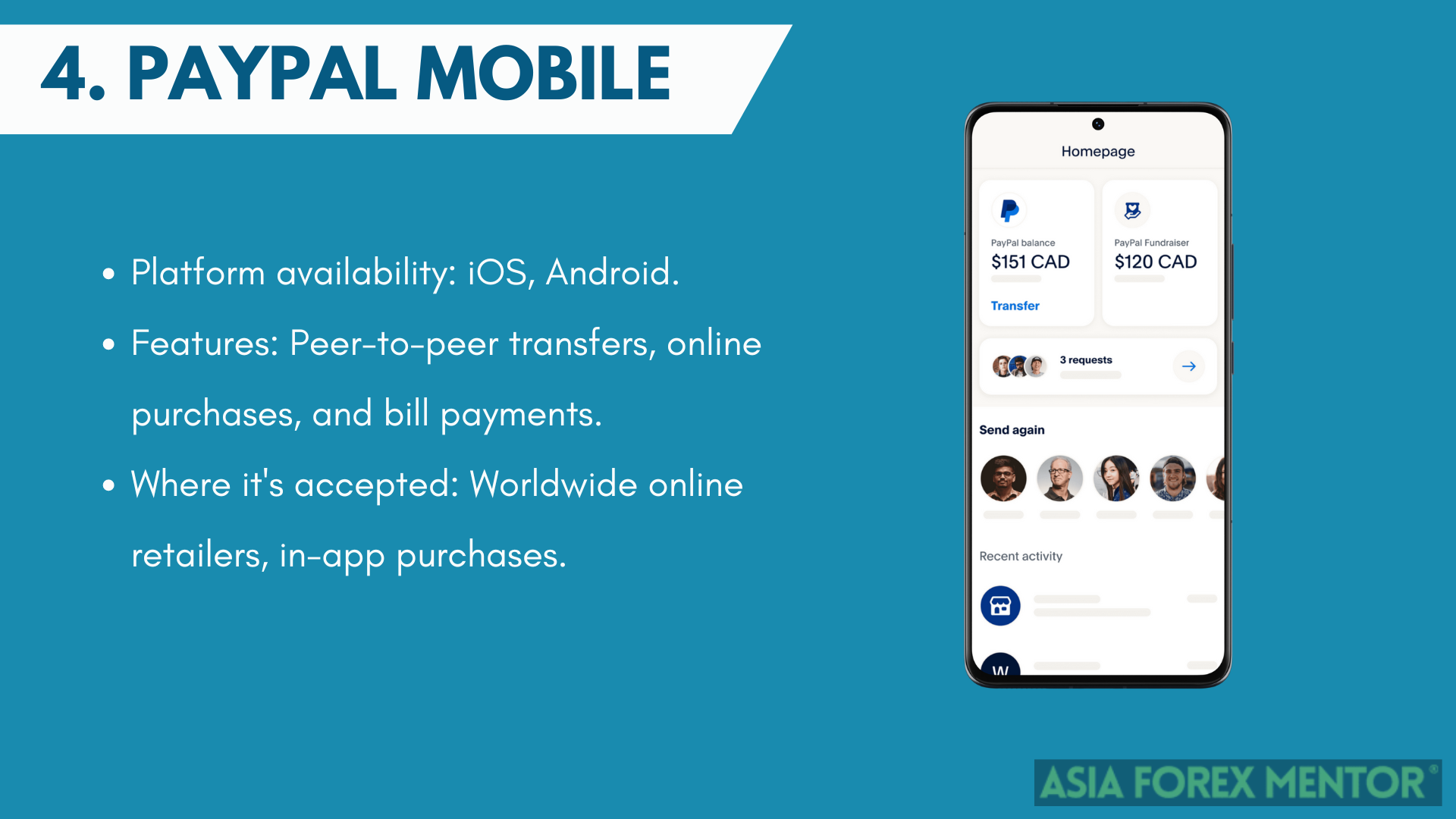
PayPal Mobile is available on both iOS and Android, making it easy to send money, pay for purchases, and manage bills from your phone. One of the standout features of the PayPal app is its peer-to-peer transfers, which allow you to send money to friends or family in seconds. Whether you're splitting a bill at a restaurant or paying rent, the app makes it quick and simple. It also supports online purchases at a wide range of retailers, letting you check out with just a few taps. Plus, you can use it to pay bills directly, tracking everything in one place.
Where is PayPal accepted? Pretty much everywhere online! It’s used by millions of online retailers worldwide and is a popular option for in-app purchases as well. PayPal also offers security features like two-factor authentication and encryption, so you can feel safe using it for your transactions.
#5. Venmo
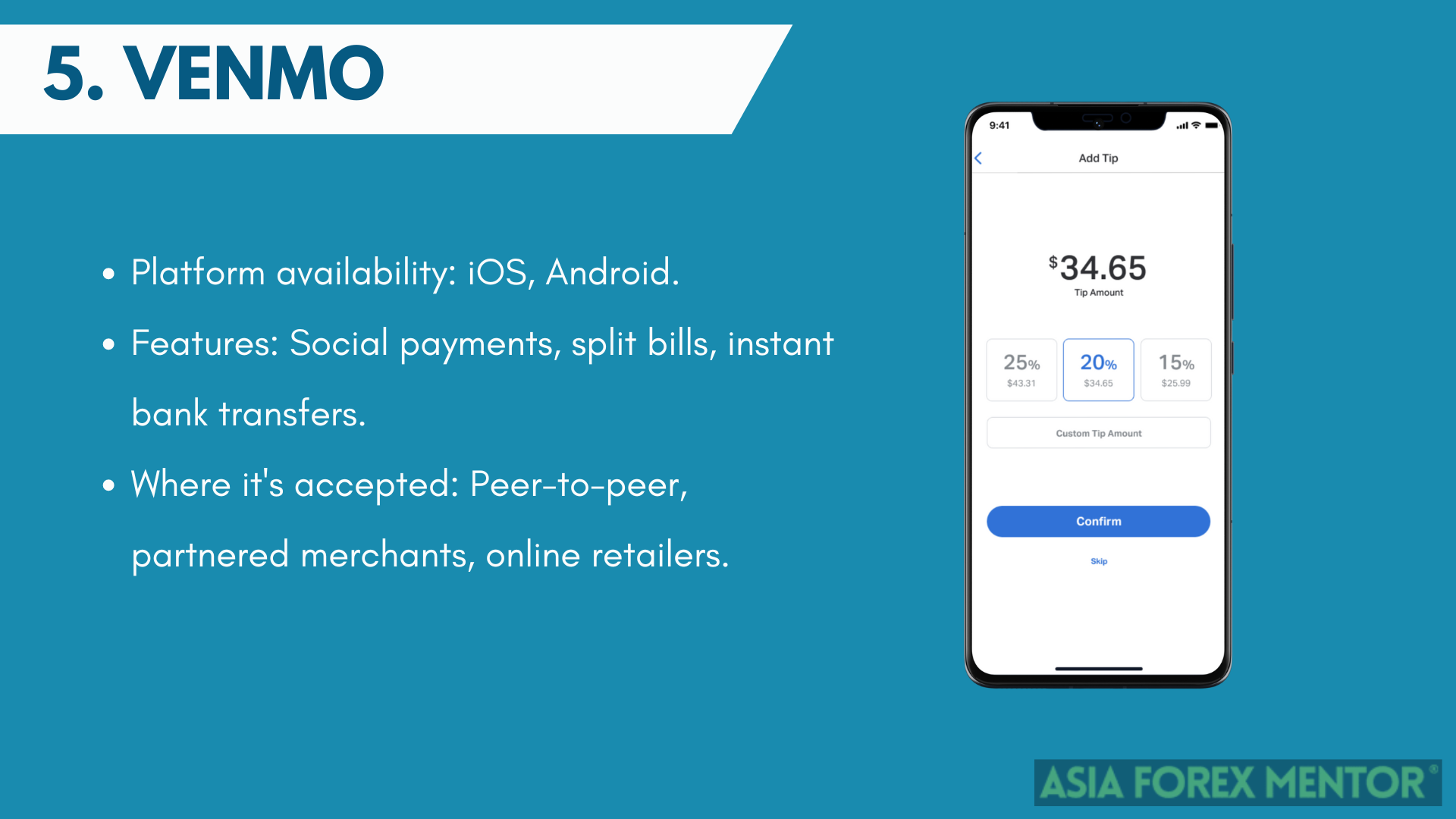
Venmo is a popular payment app available on iOS and Android, known for its unique combination of money transfers and a social platform. It lets you send and receive money with friends, making it perfect for splitting bills at a restaurant or paying back a friend for concert tickets. You can even add comments and emojis to your transactions, making it feel a little more fun and personal. Plus, instant transfers to your bank are available for a small fee if you need your money fast, though standard transfers are free.
One downside to Venmo is that it is currently only supported within the U.S.. This means you can’t use it for international transactions or to send money to people outside the United States, which can be limiting compared to other payment apps that offer global functionality like PayPal. If you need to make international transfers, you’ll have to look into alternative platforms.
Security Features in Mobile Wallets
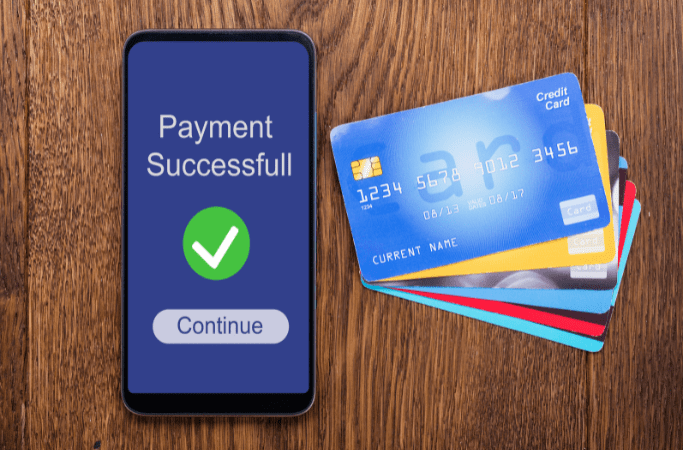
When using digital platforms, security is a paramount concern, especially when it involves financial transactions. Digital wallets are engineered with this in mind, integrating a range of security features to safeguard your sensitive payment information. Techniques like two-factor authentication, facial recognition, and encryption are employed to create a secure environment, ensuring that your financial details are protected at all times. This robust security framework positions digital wallets as a safer alternative to traditional methods, providing peace of mind to users.
The safety measures embedded in digital wallets often surpass the security offered by physical credit cards or physical debit cards. The advanced security protocols of digital wallets effectively mitigate the risk of fraud and unauthorized access. With features like encryption, they create a virtual shield around your payment information, making digital wallets safe and more secure than their physical counterparts. This heightened level of security is a key factor in the growing preference for digital wallets over conventional payment methods.
The Convenience of Mobile Wallets
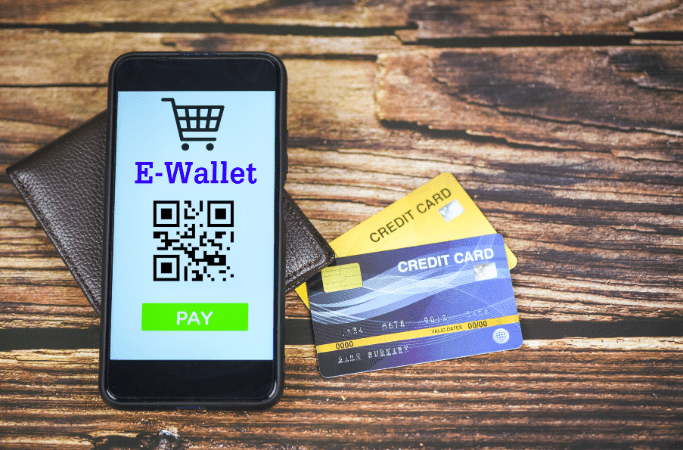
The convenience offered by mobile wallets extends beyond just credit and debit cards. They can store hotel key cards, event tickets, reward cards, and even boarding passes. This versatility makes them an all-in-one solution for many everyday needs.
Compatibility and Accessibility
The widespread usability of mobile wallet apps is a testament to their universal design and compatibility. These apps are tailored to function seamlessly across a vast array of smartphones, including Android phones, Samsung phones, and Apple devices. This extensive compatibility ensures that the majority of smartphone users, regardless of their device's brand or operating system, can access and utilize the benefits of a mobile wallet. This inclusive approach has played a significant role in the widespread adoption and popularity of mobile wallets.
In today's tech-driven world, where almost everyone owns a smartphone or a smart device like an Apple Watch, the ability to use a mobile wallet has become almost universal. This accessibility is crucial in promoting the use of digital payments, democratizing the convenience and security that mobile wallets offer. Whether it's for making payments, storing loyalty cards, or managing tickets, the adaptability of mobile wallets to various devices makes them a practical financial tool for a broad spectrum of users.
The Future of Payments: Open and Semi-Closed Wallets
Looking ahead, the concept of open wallets and semi-closed wallets is gaining traction. These wallets not only handle payment information but also interact with various service providers, expanding their utility beyond just financial transactions.
Conclusion
Mobile wallets are here to stay and will only continue to evolve in 2024. Whether you’re after the ultimate convenience or stronger security, there’s a mobile wallet for you. From Apple Pay to Venmo, these top contenders each bring something unique to the table. So, why not simplify your transactions and embrace the future of payments today? Try one of the 5 best mobile wallets of 2024 and enjoy the seamless, cashless lifestyle.
Also Read: The Best Ethereum Wallet You Should Know
FAQs
What is a Mobile Wallet?
A mobile wallet is a digital application that allows you to store payment information like credit and debit card details on your mobile device. You can use it for making contactless payments in stores or for online transactions, eliminating the need to carry physical cards.
How Secure are Mobile Wallets?
Mobile wallets are highly secure, often more so than physical wallets. They employ advanced security measures such as encryption, two-factor authentication, and facial recognition to protect your payment information from unauthorized access and fraud.
Can Mobile Wallets Store More Than Payment Cards?
Yes, mobile wallets can store more than just payment card information. They can also hold loyalty cards, membership cards, event tickets, boarding passes, and even digital keys, making them a versatile digital tool for various everyday needs.

















